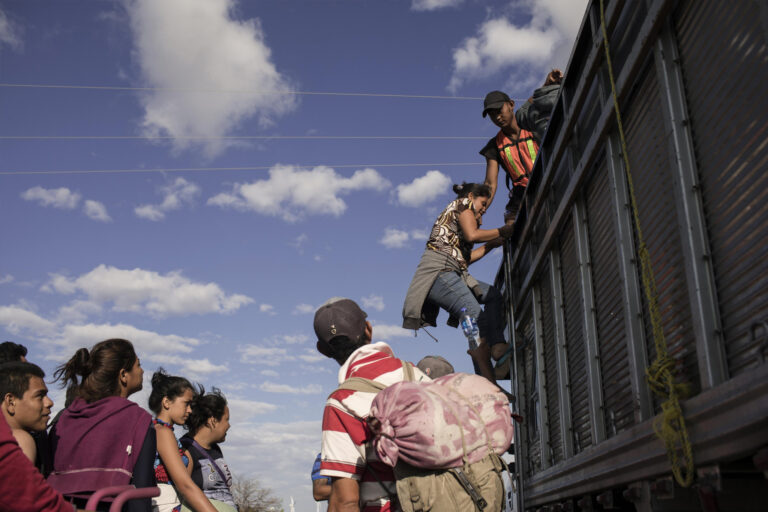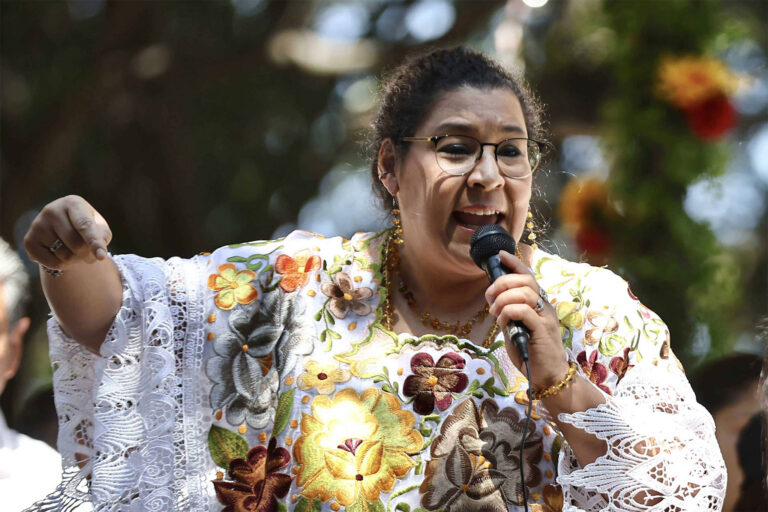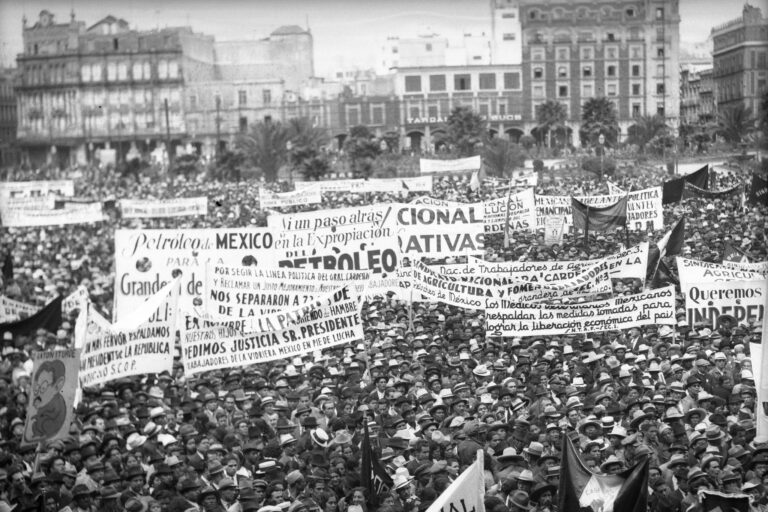A NEW DEMOCRACY
This interview originally appeared in our newsletter, Mexico Solidarity Bulletin, which appears in mailboxes every Wednesday. We encourage you to subscribe.
In an unprecedented reform of Mexico’s judiciary, on June 1, Mexico’s judges will be elected by the people.
Many questions have been raised, especially in the US media, about whether this kind of election will succeed practically and whether Mexico’s democracy will really be strengthened. With 60 candidates running for nine positions on the Supreme Court, how will people know all of them well enough to make informed decisions? And not only those 60 — they’ll be choosing many lower-level federal judges. That’s enough names on the ballot to make anyone’s head spin.
Regardless, the answer is a resounding yes! to the question of whether this election will succeed. Why? Because this election will throw the bums out!
As former Congressperson Alejandro Robles tells us today, for far too long, judges at every level have ruled for the rich and against the poor. Equal protection under the law is a bedrock democratic principle. The entrenched bias and corruption of the courts have made the majority of Mexicans lose faith in government, lose faith that justice for workers and poor people could ever be possible, and lose faith in democracy.
Even if only a million people vote, that’s 999,999 more people than the single vote of the president. No one doubts that past PRI presidents chose judges to serve their own personal and political self-interest. You’d get a fairer Supreme Court picking names out of a hat.
Yes, this first-time election of judges will be messy, and we’ll hear howls of protest from the elites arguing that it wasn’t “democratic.” But democracy is not a destination; it’s a journey with twists and turns. Mexico’s people are willing to try a brand-new route. For the first time in decades, they have hope that this will get them a little farther along their path toward democracy and justice.
The municipality of Coyoacán in Mexico City is Alejandro Robles Gómez’s home base, but he has lived for some time in Canada. His activist roots go back to the student strikes at UNAM (National Autonomous University of Mexico) in 1999/2000. In 2006, he began his political service as a national Congressperson. He served again in 2021-2024 as a Morena representative. He is now Secretary of the Executive National Committee for Mexicans Abroad.
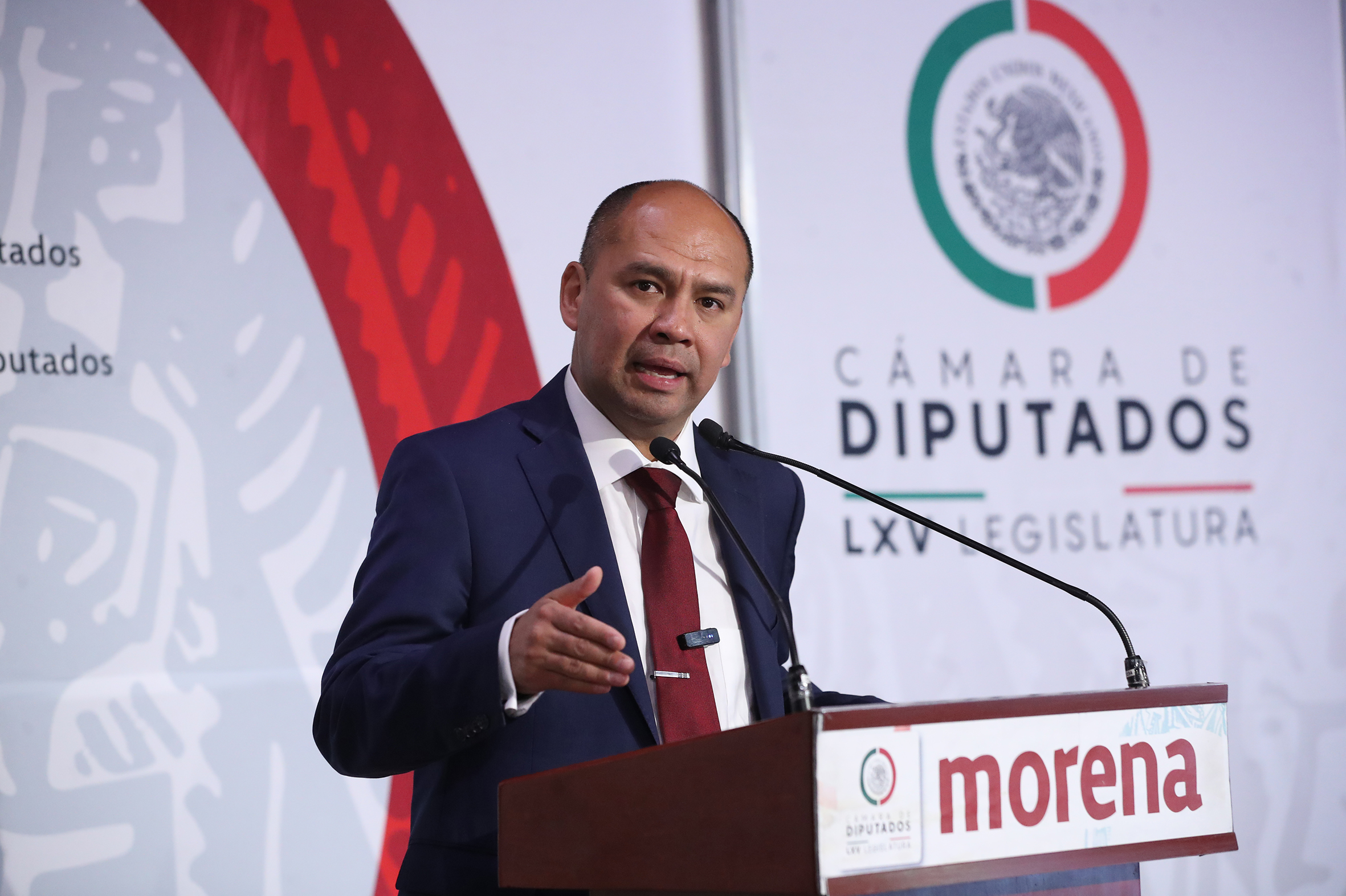
AMLO was elected in large part because he promised to root out corruption in government. Was there corruption or bias in the judiciary?
We have a long history of judicial corruption and of bias toward moneyed interests and political figures.
For example, in 2009, a horrific fire in the city of Hermosillo at Guardaría ABC, or ABC Daycare, took the lives of 49 toddlers and injured 100 more.
The building had passed inspection just weeks before, despite faulty installation of sprinklers and several other safety hazards. But the courts held no government officials responsible. The parents got no justice.
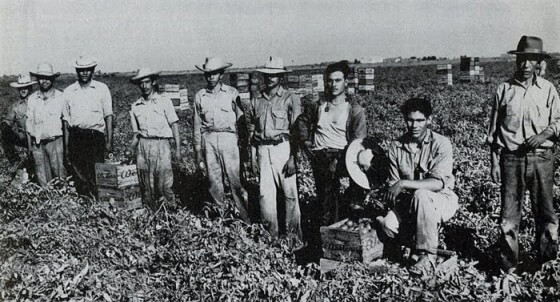
Workers rights, guaranteed by the Mexican constitution, were trampled. The neoliberal president Felipe Calderon ordered the public electric company, Luz y Fuerza, to be closed and electric services privatized. The company illegally threw 44,000 workers out into the streets without notice. The courts did nothing, and the Electrical Workers’ Union is still fighting the case, almost 20 years later.
The Supreme Court also helped the government defraud poor migrant farmworkers. From 1942 to 1964, the Mexican government withheld 10% of the braceros’ wages, supposedly as a savings fund. Neither the workers nor their families ever saw that money again.
Finally, in 2018, a Supreme Court decision compensated each bracero 38,000 pesos, although the accounting reports said at least 1 million pesos were due to them.
But the courts have taken good care of government criminals. We all know about Genaro García Luna, the national Secretary of Public Security under president Felipe Calderón, who has been convicted in a US court of drug trafficking and working hand in hand with the Sinaloa cartel. The fox guarding the hen house! He helped cover up evidence in the case of the 43 Ayotzinapa teacher college students who were disappeared.
Just this week, a Florida court ordered him and his wife to pay over 2 billion dollars — billion! — to the Mexican government for defrauding Mexican taxpayers. But the Mexican Supreme Court the very next day unfroze their assets so that they could access the money, perhaps for their defense. The Court aids this convicted criminal because he’s one of their own.
At the state level, the corruption is even worse, if that’s possible! While the Supreme Court has a huge budget, provincial courts do not. Nepotism permeates their offices.
That’s why so many of the judges’ administrative staff protested against judicial reform; they didn’t want to lose their cozy jobs. And locally, many judges worked “gown to gun” with organized crime.
You served in Congress from 2021 to 2024. Were there less drastic reforms considered other than completely overturning the judicial system?
Our people are awakening to a desire for democracy — but not in the US paradigm.
As a Morena legislator, I saw that when we passed new laws benefiting the people, the Supreme Court moved to invalidate those laws. They made political decisions that were not based on the constitution and overstepped their authority time and again. In fact, they placed themselves above the constitution. Under AMLO, the Constitution was amended to require that no public official have a bigger salary than the president. But the Supreme Court judges issued a ruling that exempted them from complying with the Constitution and continued to draw exorbitant salaries. These are the reasons why Court reform became a pivotal issue for us.
I proposed that we only elect Supreme Court justices, members of the national Electoral Commission (INE), and the Judicial Discipline Tribunal responsible for reviewing the proper conduct of judges, and I excluded lower-level judges from elections.
But the conflict between the Supreme Court and AMLO became so heated that he proposed a stronger reform — proposing that all federal judicial positions be elected, including labor judges.
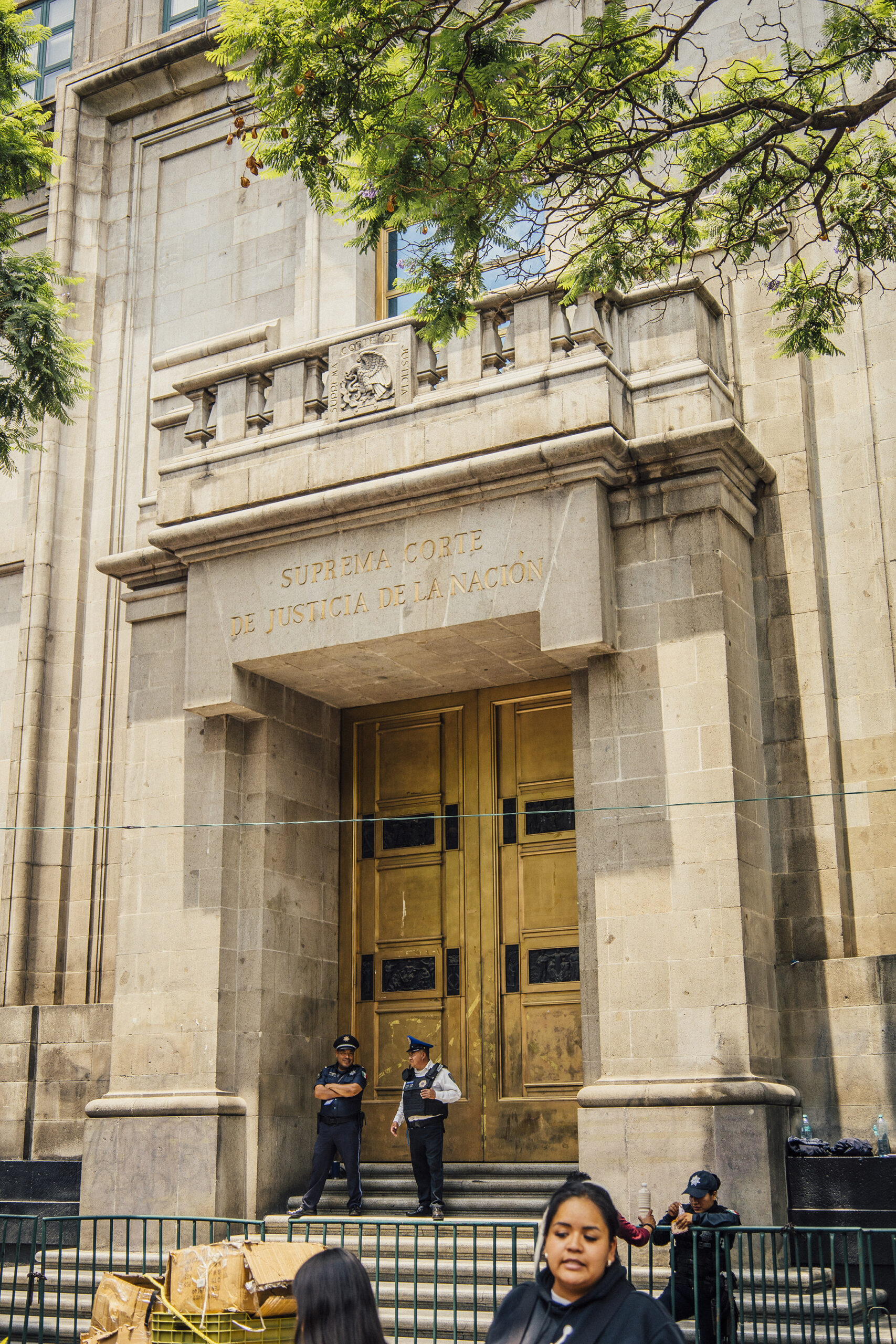
Do the majority of Mexicans support the election of judges? And with so many candidates, will people be able to make informed decisions?
One year ago, the people overwhelmingly voted for the Fourth Transformation project, known as Plan C. This plan included eliminating the current Supreme Court and introducing popular elections for all judges.
Will people participate? As we know, many people don’t vote. In a presidential election, you might get at most 60% of voters; in midterms, maybe 30%. This election is a new, unprecedented process, and it doesn’t occur at the same time as either the presidential or midterm elections. If we get 15 to 20% of voters, we’ll feel we’ve succeeded.
How did the candidates campaign? They weren’t allowed any conventional, expensive campaigning, with billboards or TV advertisements. They only used flyers and social media. We believe a democracy must have a true separation between economic and political power. It should not be that the one who spends the most, wins.
Political power should not be bought and sold. The slogan of our movement is “For the good of all, but first the poor.” In the US, Trump’s administration says, “For the good of some, but first Elon Musk!”

Why does the US say these elections show that Mexico is moving toward authoritarianism?
In the past, Mexican courts were run like businesses. Whoever paid more had more access to “justice.” So judges that can’t be bought are a threat to powerful interests, particularly private North American interests that hold significant influence in Mexico.
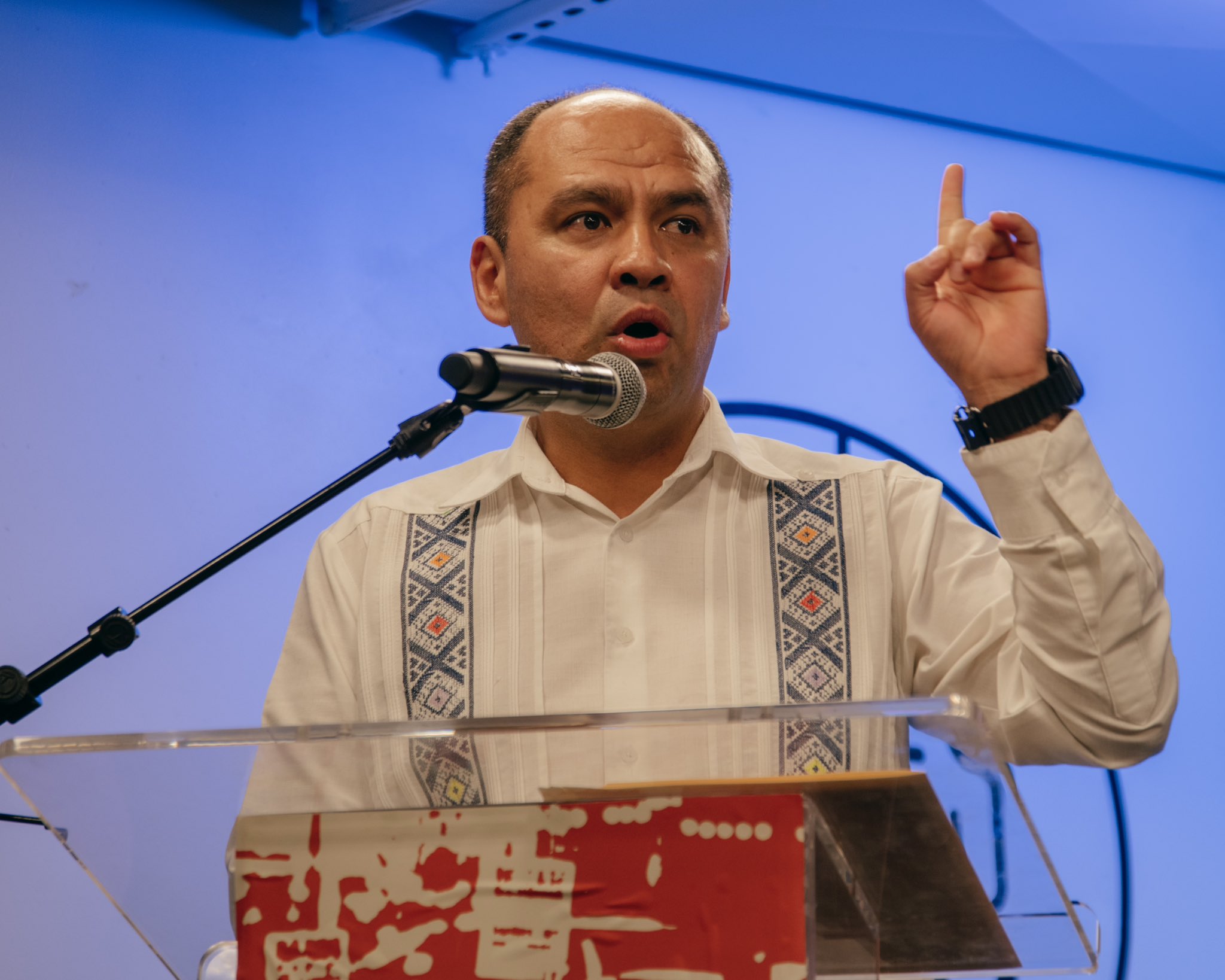
In the meantime, our jails are full of the poor, as well as Blacks, migrants and Indigenous people. That must end. One step is to eliminate private, for-profit jails. Who owned most of those in Mexico? García Luna!
In the US, many migrants suffer in private, overcrowded detention centers with minimal health services. Now, Bukele in El Salvador is building prisons for deported persons and getting lots of US money to do so. Trump’s deportation regime is a form of human trafficking! Humans are a commodity that brings handsome profits to the few.
It’s not easy to overturn a corrupt system that has been in place for nearly a century. Can Mexico become a more democratic country?
Our people are awakening to a desire for democracy — but not in the US paradigm. In US democracy, the people’s interests are subordinated to those of the oligarchy. Another democracy is necessary!
In Mexico, people have the power now to choose their judges, judges for whom justice means more than just applying laws. Justice can be built on compassion, respect, and love.
-
Let’s Talk About Migration: Trumpist Persection
Millions of women who have endured unspeakable violence on their migration journey are now being persecuted in the United States by an extremely xenophobic and misogynistic government, led by Donald Trump,
-
Genocidal & Extractive Capitalism
This week, the United States claimed to be negotiating to avoid war with Iran. It was merely a cover for a new attack. Where are the efforts to stop it?, asks Mexican Supreme Court Minister Lenia Batres.
-
Trump Will Not Take Our Oil
Venezuela’s oil belongs to the Bolivarian Republic. Mexican oil belongs to the people of Mexico. If the current administration decides to trade it with Cuba or any other country, it has every right to do so. Mexican oil does not belong to the US nor to Donald Trump.


